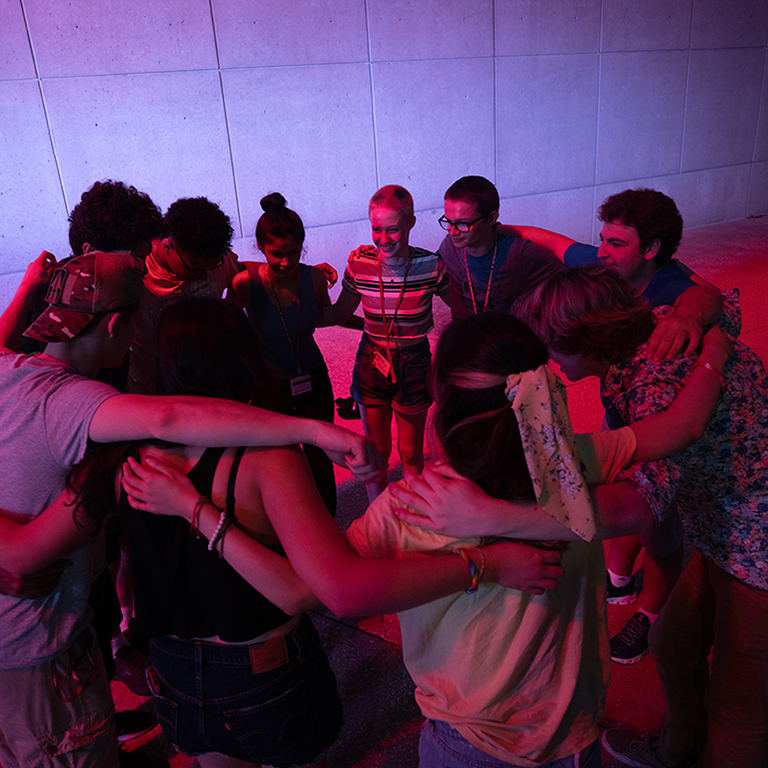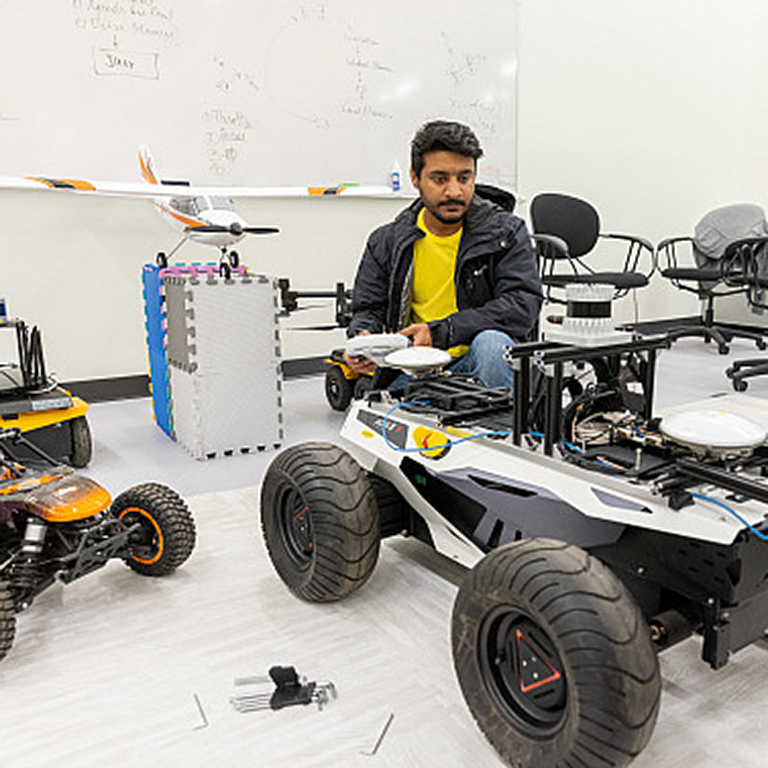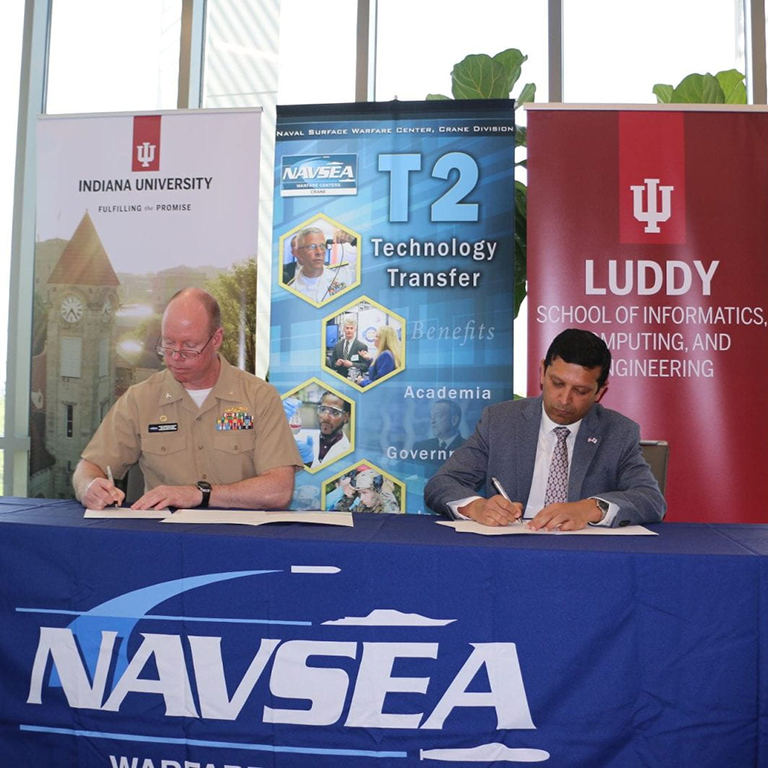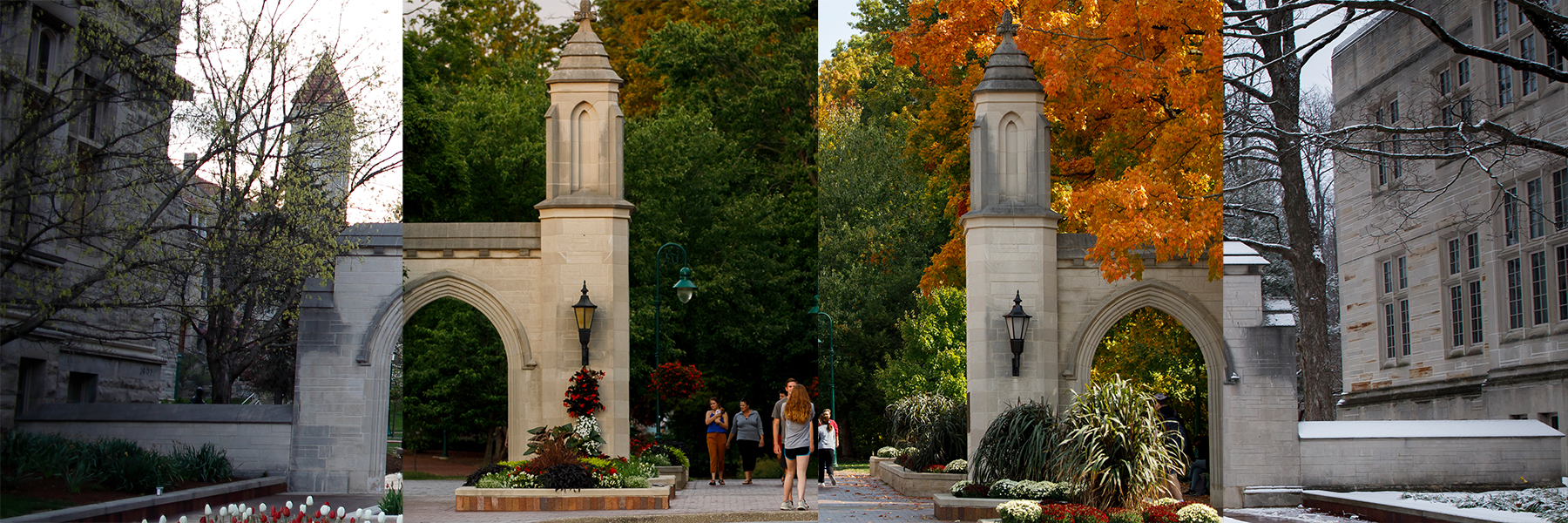As President Whitten and colleagues shared earlier this week, we are making remarkable progress toward the ambitious goals we charted together for IU and IUB 2030 — uplifting student success, innovating in research and creative activity, and expanding our impact across Indiana and far beyond.
Advancing IUB 2030
Enhancing the student experience
On the Bloomington campus, our collective commitment to our students has never been stronger, as evidenced by new and reinvigorated initiatives focused on student success. Interim Vice Provost for Undergraduate Education Vasti Torres and Executive Director of Academic Advising Dan Turner have initiated a comprehensive assessment of academic advising on our campus aimed at increased retention and successful outcomes for all students. Work is advancing quickly to ensure all students have equitable access to high-quality academic advising and academic support resources with a goal of having a new advising plan in place by summer of 2024.

Vice Provost Torres is also leading an IUB 2030 working group charged with developing and launching a common first-year seminar course for all undergraduate students, which will be piloted in select courses in fall 2024. Other promising working groups are focused on bolstering the first-year experience for incoming undergraduates and improving pathways for transfer students.
Additionally, David Daleke, the inaugural dean of the IU Graduate School Bloomington, and his team have been focused on substantially expanding campus support for graduate students in several key areas. These include growing career resources and pathways, addressing workload challenges, improving time to degree, and enhancing mentoring.
The upcoming launch of Stellic, a comprehensive online student success platform, will be instrumental in all these student-focused initiatives.
Catalyzing research and creative activity
This past year has also seen incredible investments that bolster our mission at IUB as a national leader in research and creative activity. As part of the recently announced $250 million dedicated to accelerating research in biosciences, biomedical engineering, and health and wellness, we have committed $93 million to hire new life sciences faculty at IU Bloomington — part of the Faculty 100 initiative. In addition, $23.5 million will be invested over the next five years to recruit faculty in microelectronics, nanotechnology, artificial intelligence, machine learning, and cybersecurity as part of the university’s $111 million investment announced this fall. Recruiting is already underway for many of these positions, and we look forward to welcoming accomplished new colleagues in the months and years to come.
In support of these game-changing investments, IU’s Board of Trustees approved $45 million in major research laboratory renovations on our campus, which should begin next spring and significantly expand our research capabilities.
Ensuring we have the right people to lead is critical to the success of both new and existing endeavors in the areas of research and creative activity. I’m thrilled that Brea Perry was named associate vice president and vice provost for research in September; Scott Michaels has joined recently as assistant vice president to lead centers and core facilities; and Ed Dallis-Comentale as associate vice president for arts and humanities research. As leaders on campus and in IU Research, these colleagues will be instrumental in driving progress on IUB 2030 research and creative activity initiatives.

We are also launching a national search for a new arts and humanities leader for our campus, who can grow new collaborations and further increase student and community engagement with IU Bloomington’s extraordinary offerings in arts and humanities.
Increasing our impact
We have also taken important steps in our commitment to making a positive impact on our communities and developing crucial partnerships across our state and beyond. The Center for Rural Engagement serves as a vital partner for rural communities throughout our state and plays an important role in advancing IUB 2030 service initiatives. State rural affairs leader Denny Spinner was recently named interim executive director for the center, and we will work together in the coming year to shape its next chapter.
Our historic partnerships with NCSW Crane in the areas of microelectronics and nanotechnology will accelerate the growth of those industries in Indiana, strengthening our state’s economic competitiveness and playing a vital role in the strength of our nation’s defense sector.
We also saw the early-November launch of IU Innovates in Bloomington’s Von Lee building. With Executive Director Julie Heath at the helm, IU Innovates will be the core of university efforts to accelerate entrepreneurship and innovation—efforts that cut across all three IUB 2030 pillars and hold great promise for our campus.

As 2023 comes to a close, we should be proud of the significant progress we have made on IUB 2030 initiatives and the shared goals they support. Without a doubt, 2024 will offer even greater opportunities for us to form new connections and, together, forge innovative paths toward a brighter future for IUB and our world.



